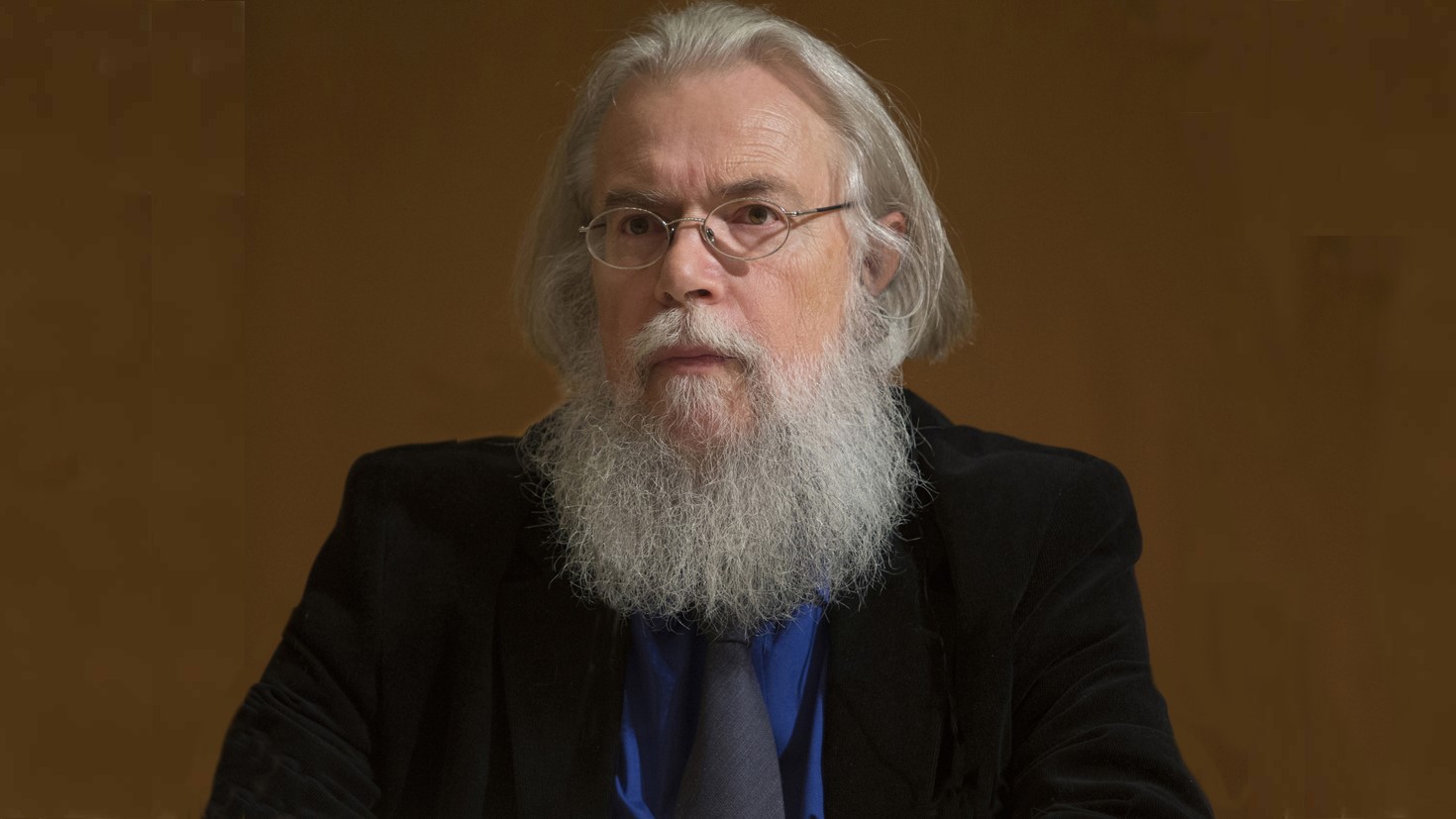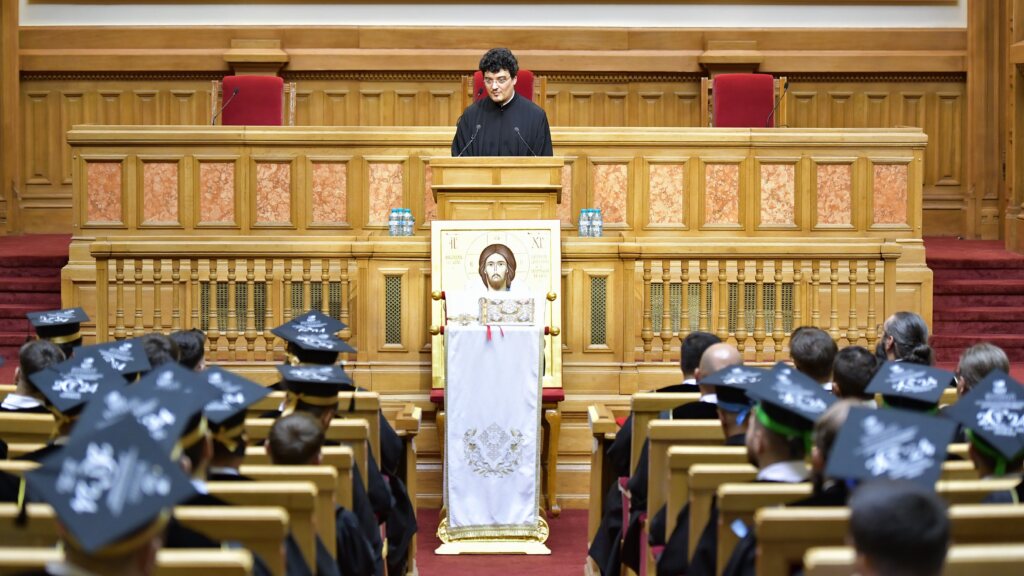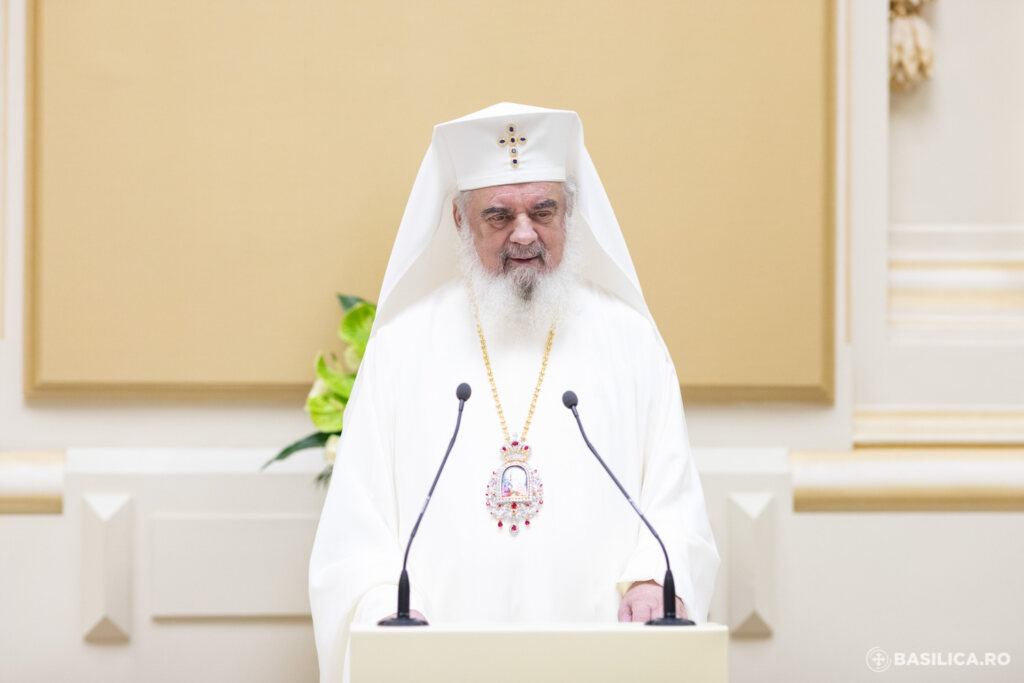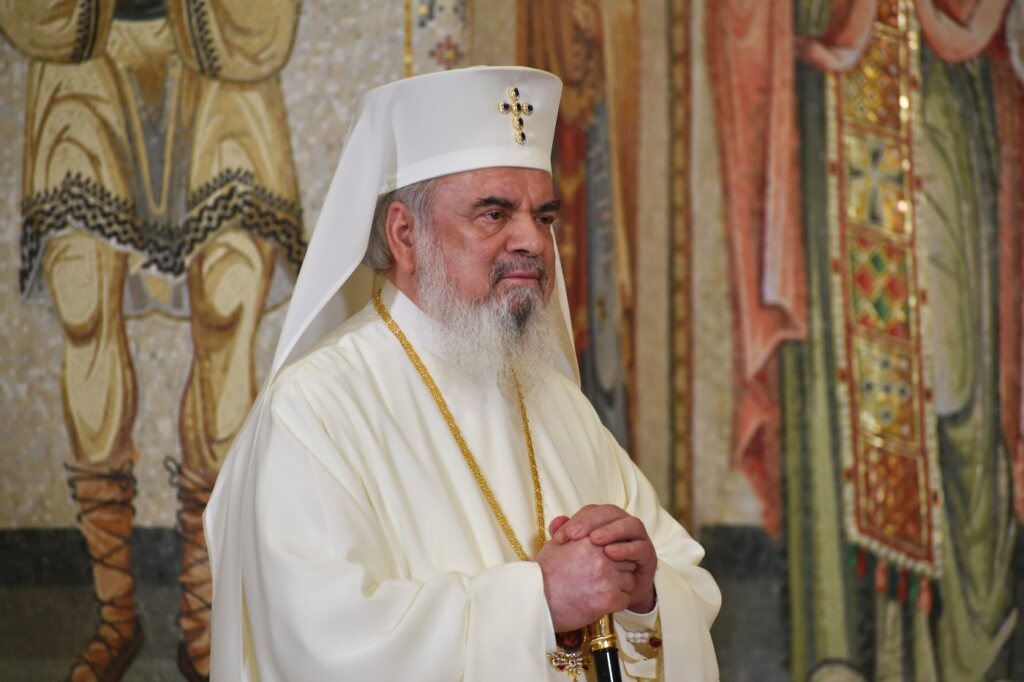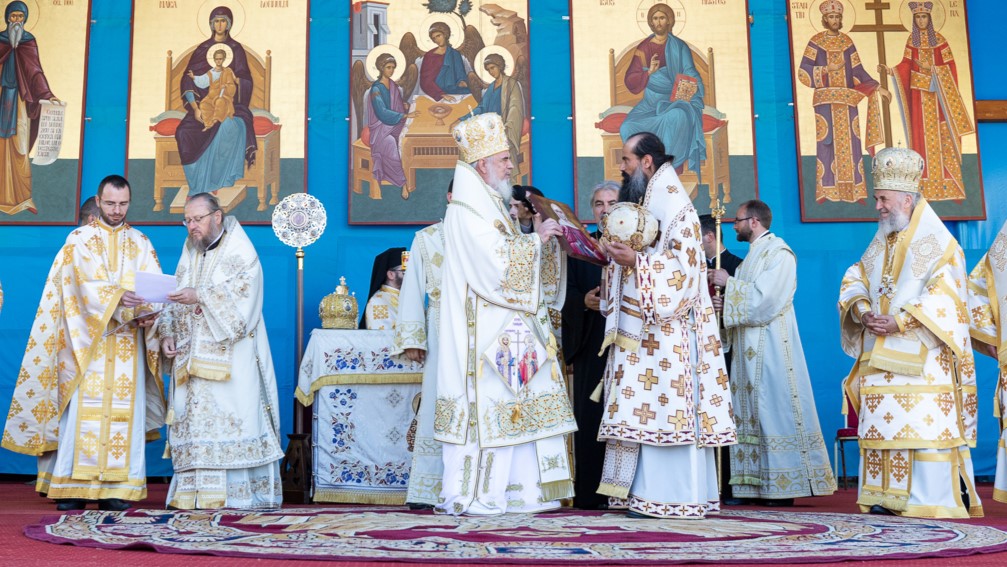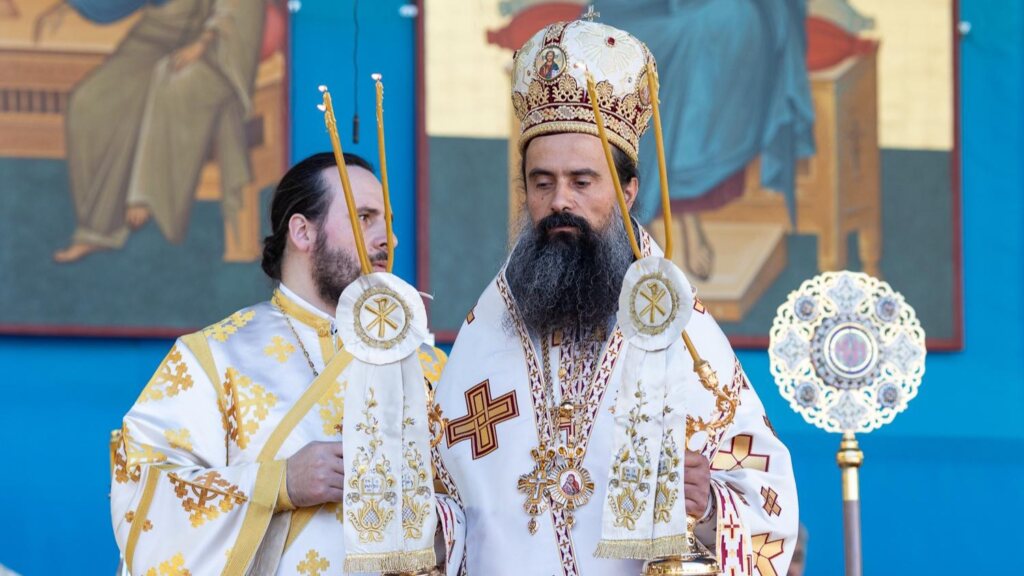Basilica.ro invited Jean-Claude Larchet to a dialogue on diseases of the body, mind and spirit. The theologian also spoke about the ideologies that undermine today’s society, explaining how Christianity teaches us to assume the limitations of our bodies and those imposed by disease.
“Christianity’s distinction between original and fallen nature helps Christians to come to terms with the current limitations of their bodies. Spirituality gives them the means to transcend these limits spiritually, in anticipation of their physical overcoming in the Kingdom of Heaven,” he says.
Basilica.ro: The year 2024 has been declared in the Romanian Orthodox Church as the Solemn Year of the Pastoral Care of the Sick. In your opinion, what are the most serious illnesses of the 21st century and how can the Church contribute to their care and cure?
Jean-Claude Larchet: Illness and the suffering that usually accompanies it are part of the fallen human condition, and everyone experiences them at different times and to different degrees. Spiritual illnesses (i.e. the passions) are part of every human being, and in the 20th century – as in previous centuries and from the beginning of the world – the most serious illness is selfish love of oneself, which the Greek Fathers call philautia, and which they consider to be the mother of all illnesses.
It is the exact opposite of (and the first obstacle to) the virtues that Christ gave us as our first commandments: love of God and love of our neighbour. It is very similar to another spiritual illness that is often presented as being the most important: pride, in which the individual places himself at the centre of everything and above everyone else, in the place that should belong to God and our neighbour.
If we now look at mental illnesses, the most important in our time is depression. It is particularly linked to two other spiritual illnesses: sadness and acedia, but also to the absence (or weakness) of two virtues that Western tradition calls „cardinal”, because they are the pivots (in Latin cardines) of inner life: faith and hope.
The first gives meaning to life (and the loss of it is the primary cause of depression) and the second gives us confidence in divine providence, i.e. in God’s benevolent help to get us out of all our difficulties. The massive disaffection with religion in our time has increased the strength of these passions and deprived people of the above-mentioned virtues.
That’s why part of the world has sunk into depression and is taking various drugs (including digital drugs!) to try and escape it, without understanding that the supposed cure is increasing the disease.
We can overcome bodily illness through spirituality
As far as physical illnesses are concerned, we are witnessing an increase in two serious diseases, each in their own way: cancers and degenerative diseases (Alzheimer’s disease, Parkinson’s disease, senile dementia, etc). This development is linked to the ageing of population, but younger and younger people are also affected.
The possibilities for medicine to counter these diseases have developed, but remain very limited. If you are a believer, you can expect miracles from God and his saints (particularly the anargyre saints), which sometimes happen, either by making the disease disappear (in the case of cancers) or – as is often forgotten – by slowing its progress.
But the general rule is that the laws of fallen nature take their course and God does not intervene, because the fallen state is a consequence of the ancestral sin and all the sins that confirmed it; these sins were man’s choices, and God respects man’s freedom even in its effects, otherwise it would not be true freedom.
But as Christians, we are not abandoned: God always allows us to spiritually overcome illness and to benefit spiritually from it.
If Christ suffered during His Passion and on the Cross, it was not to pay a ransom or to expiate the sins of mankind, as a false theology has claimed (especially in the West), but to acquire for us the grace (which we always receive if we are united to Him through the Holy Sacraments and prayer) to make suffering lose all its negative power over us (in particular the power of distancing us from God!) and to make of suffering a form of asceticism that helps us detach both from the world and from ourselves, so that we can love God and our neighbour more.
Ideologies, vectors of collective illness
Finally, we need to mention illnesses that are little talked about, even though they are more and more evident in our time and are particularly worrying: these are collective illnesses, which affect entire societies, but also states and, unfortunately, also Churches.
Among the first are the illnesses caused by the new media, which I discussed at length in one of my recent books. They destroy not only attention but also, and above all, contrary to appearances, interpersonal relationships.
They substitute a real and profound world of communion with an artificial and superficial mode of communication and have a destructive role not only for individuals, but for couples and families, whose members are glued to their smartphones, living next to each other, but not with each other.
On social networks, false theories seduce many people, and influencers have become spiritual fathers for many young people. In a conference on digital media and Orthodox pastoral care held in Crete in 2018, I proposed that the churches officially introduce new media fasting among other fasting rules.
This proposal enjoyed wide coverage in all the Orthodox media, including yours, but unfortunately was not followed up. How long before the Churches become aware of the seriousness of the problem?
Another illness affecting today’s societies is a form of delusion – a false perception of reality – concerning firstly the nature and relationship of the sexes (male and female) and the orientation of human sexuality; and secondly, man’s relationship with nature. These are two components of what is known as „woke thinking” or wokism.
The first is expressed in gender theory (according to which gender is a matter of individual choice), radical feminism (according to which the male gender must be abolished) and the LGBTQIA+ movement (according to which many sexual orientations are legitimate and a matter of individual choice); the second is expressed in radical ecology (according to which nature is more valuable than human beings, who are merely its predators).
As far as other collective illnesses are concerned, their effects can be seen in wars between countries and disputes over power and territory between Churches. Their cause is nationalism and phyletism, which is an ecclesiastical form of nationalism.
Both are forms of pride and more precisely of a form of pride that does not appear in the classic lists of passions and is therefore underestimated, but which is well highlighted in the prayer of Saint Ephraim the Syrian, which is recited several times a day during Great Lent: the spirit of domination.
It is certainly an individual illness, but it is also a collective illness, because, as philosopher Immanuel Kant said, states are affected by the same passions as individuals, and we could also add the Churches in their human – all too human – dimension…
The body participates in our spiritual life
Basilica.ro: You have written a book entitled “Theology of the Body”. Current ideological trends seem to scorn the body in favour of the invisible part of existence, emphasising man’s right to transform his body, even biologically or from a medical point of view, according to the soul’s desires or various passions. What is the importance of the body in human existence and the history of salvation?
Jean-Claude Larchet: In answer to the last part of your question, I would simply point out that the human person, by nature, is indissociably made up of soul and body (the separation of the two following death being only temporary and without losing the essential link between them). God created man as soul and body; at conception, body and soul are formed simultaneously and linked from the first moment; at the resurrection, soul and body will be reunited, and the body will then have a new mode of existence.
Above all, we must remember that, in coming among us, the Word of God took on a body in every way similar to our own, and in it He saved and deified all humanity, soul and body, giving the grace of this salvation and deification to each person who believes in Him and unites oneself to Him through the Holy Sacraments and through spiritual life.
The body occupies an important place in spiritual life, since it is co-actor with the soul in all the acts performed by man. It participates in all spiritual activities using means appropriate to its own nature. It receives the Body and Blood of Christ at the same time as the soul, and is transformed spiritually at the same time, being „Christified” and truly becoming the temple of the Holy Spirit.
Staying with the question of illness, which is at the heart of this interview, it should be stressed that the people of our time, most of whom have lost all the norms of Christian anthropology, have a real problem with their bodies.
They aspire to absolute freedom, including in relation to their own bodies, of which they intend to reject not only all determinations, but all orientations defined by nature according to the body’s genetic, organic and physiological constitution, and sometimes even according to its very structure and form.
The desire to have total control over one’s body is not confined to transsexualism (which is on an uptrend these days), but is a veritable phenomenon of modern civilisation, as demonstrated by the importance of cosmetic surgery and all the other means of modifying the body’s appearance (through piercings, implants or tattoos).
The discomfort that human beings can feel in relation to a given body, the constitution or form of which they have no control over, and which constitutes a hindrance or obstacle to their aspirations, be they spiritual, psychological or physical, runs through the history of philosophy – from Plato to Foucault – and also that of spirituality – as witnessed in a radical way by various Gnostic sects, but also, in a more nuanced way, by the ascetic writings and practices of all religions.
We should assume the body’s current limitations
It undoubtedly reveals a profound problem. This problem concerns the human condition in this world, its limits (or, to use a more metaphysical term, its finiteness) and the difficulty of bearing them for a mind that is limitless in what it can conceive and imagine.
It also touches on man’s aspiration to reach an ideal – or at least superior – condition, where these limits would be ontologically exceeded.
But, in the current situation, it is unrealistic, utopian, infantile and even pathological to deny these limits. Man may deplore not having wings to fly, not having ten arms like Shiva, and not having multiple eyes like the cherubims.
But he is, like every other being in this world, defined by particularities that he must accept, and it is in his ability to accept them that he can find inner peace and happiness; their rejection can only place him in a permanent state of frustration and failure.
Adam was stripped of his original condition for having tried, according to the serpent’s promise, to become „like God”. Anyone who goes against nature condemns himself to the hell of unnature. Without referring to divine punishment, we can consider that nature always takes revenge on those who deny it and act against it.
Christianity’s distinction between original and fallen nature helps Christians to come to terms with the current limitations of their bodies. Spirituality gives them the means to transcend these limits spiritually, in anticipation of their physical overcoming in the Kingdom of Heaven.
Hesychast spirituality in particular is a perfect model for integrating the body in such a way that it participates in the spiritual progress of the soul, and is progressively deified with it. This spiritual way of embracing the body is the only realistic and fruitful way of transcending its limitations.
“Male and female He created them”
Basilica.ro: Discussion of the role of the body in human identity also leads us to the idea that a person’s gender is not „fluid”, as some contemporary theories claim, but linked to the body in which the person lives their life. How can we help and support children to strengthen their gender identity – male or female, as the case may be?
Jean-Claude Larchet: Man – body and soul – is gendered by nature and by divine creation („Male and female he created them”).
The way in which gender is socially defined is obviously, on certain points, open to question and correction. But this does not justify the abolition of gender, or of a particular gender, or a change of gender.
Generally speaking, nature has always done things well. The vast majority of human beings, spontaneously and from early childhood, assume the gender that corresponds to their sex without any problem.
There may be people who, for genetic, physiological (hormonal) or psychological reasons, feel that they are a different gender to the one that corresponds to their sex, but in the past and until recently, these people were very few in number.
Little girls who would rather be boys, or little boys who would rather (less frequently) be girls is a fairly common phenomenon, but a transitory one, just like the uncertainties that many teenagers face at some point.
The problem is that today there is an ideology (commonly referred to as gender theory) that originated in the United States and has spread to Europe thanks to the support of the media, of governments and international institutions. It promotes not only the idea that gender is independent of sex and can be freely chosen by each individual, but actively campaigns for this to be taught starting from primary school, which is where the danger lies.
In the United States, many Christian parents have withdrawn their children from public schools and put them in private schools, where they are sheltered from such propaganda.
In any case, it is important for parents to support their children in any questions they may have, not to follow any (almost always short-lived) inclination they may have to change gender, and to provide counter-teaching based on Christian values to the misguided teaching from school.
“Transfiguring Gender” in Christianity
Basilica.ro: What themes do you address and what messages do you convey in your recently published book, “Transfiguring Gender”?
Jean-Claude Larchet: It will soon be available in Romanian translation. It is a rich work, difficult to summarise, which, on the basis of the Bible and the writings of the Fathers of the Church, defends the existence of the two genders while proposing a spiritual overcoming of their limitations.
It particularly shows how the relationship between the two genders must be conceived and lived from a Christian perspective, which is different from the false conceptions of virility and femininity that society conveys (and which partly justify feminist criticism), and also different from the bad relationships that the passions (in particular selfishness, pride, the spirit of domination and sexual passions) establish within male-female relationships.
Rereading the biblical texts and bringing to light patristic texts that have often been neglected, the book shows that Christianity considers women and men to be fundamentally equal, because they have been identically created in the image and likeness of God, they share the same human nature (of which gender is only a specificity), they have been equally saved by Christ and their common destiny is to be deified by grace.
It shows that men and women have their own charismas, which are complementary and intended to enrich both. Christian life preserves both genders and ensures a harmonious and fruitful unity between them, as it eliminates the passions that pervert relationships and it nurtures the virtues that are common to both genders.
These virtues ensure veritable gender fluidity of the genders while preserving them: the woman acquires virile qualities in her ascetic efforts, the man feminine virtues when he acquires the virtue of gentleness, when the virtue of compassion softens his heart, when the virtue of penitence brings tears to his face.
When the Apostle says „In Christ there is neither male nor female” (Galatians 3:28), he does not mean that the genders have ceased to exist, but that conflicts, oppositions and divisions between them have ceased through their union with Christ and in Christ.
It is in the same sense that he says, looking at racial and ethnic conflicts, that „in Christ there is neither Jew nor Greek”, or looking at social conflicts, that „in Christ there is neither slave nor free man”
The Church and the challenges of the pandemic
Basilica.ro: You were a moderate voice during the Covid-19 pandemic. What ideological and spiritual challenges did the Orthodox Church face during and after the Covid-19 pandemic?
Jean-Claude Larchet: We do need to return to this subject, because other pandemics will occur in the future and reflecting on what we have experienced helps us to prepare. That’s why I entitled my book: Petite théologie pour les temps de pandémie – for the times of pandemic.
I think the most serious aspect of what has happened was the division within the ecclesial community brought about by a fundamentalist clergy hostile to all protective and preventive measures: they not only expressed themselves with great violence but also irresponsibly led to the death of some faithful, monks and nuns.
It is paradoxical that this clergy, who claim to be ultra-orthodox and close to the Holy Fathers, acted in the name of principles that are alien to Christianity, marked by conspiracy ideas promoted on some social media channels in recent years.
It is astonishing that this clergy so wrongly attributed the disease to God and the means of prevention and cure to the devil. We saw priests refusing to give the Holy Communion to the vaccinated faithful and faithful who refused to attend the Divine Liturgy celebrated by vaccinated priests! Arguments and fights broke out inside churches, even during the Liturgy.
Beware of magical thinking
All this is likely to happen again, especially as conspiracy theories, fuelled by social media, are spreading more and more, even though they are increasingly irrational.
We should take advantage of this year dedicated to health, illness and healing to provide the clergy and the faithful with a serious education on how Christians should care for their health (which is a gift from God) and the duty they have to protect the health of others (this is a dimension of charity), as well as on how the Church, since Its origins, has positively looked at secular medicine and the therapeutic and prophylactic means it proposes – including, in recent times, vaccines, which merely compensate for a part of the immunity that lost by the fallen humanity and even further reduced by old age.
Training would also be useful to free some clerics and monks from the magical thinking that the church is a protected place where you can’t get sick.
Theologically, we should also insist on the fact that God does not send mankind any pandemics, diseases or suffering – and that it is even blasphemy to think otherwise. Instead, in all the pandemics, diseases and suffering – that are linked to man’s fallen condition as a result of sin –, God is present as close as possible to all who believe in Him and put their hopes in Him to help them overcome spiritually what could not be prevented physically.
Orthodox voices must be heard online
Basilica.ro: As journalists of the Romanian Patriarchate, we have a strong presence on social networks and the Internet. To what extent do you consider important the online presence of Orthodox voices?
Jean-Claude Larchet: Orthodox voices need to have a presence online, because, unfortunately, for the vast majority of our contemporaries, the Internet has become the only source of information.
Unfortunately, on-screen reading is both fast and slow. For readers, reading on a screen doesn’t allow for the same level of attention and depth as reading on paper and the information you find is, shall we say, very fleeting and quickly carried away by the incessant flow of more information, so quickly forgotten…
It is important to educate young people on the benefits of traditional reading and to preserve Orthodox book publishing in a world where the distribution of Christian books is increasingly restricted and becomes an apostolic mission for the publishers.
A short biography
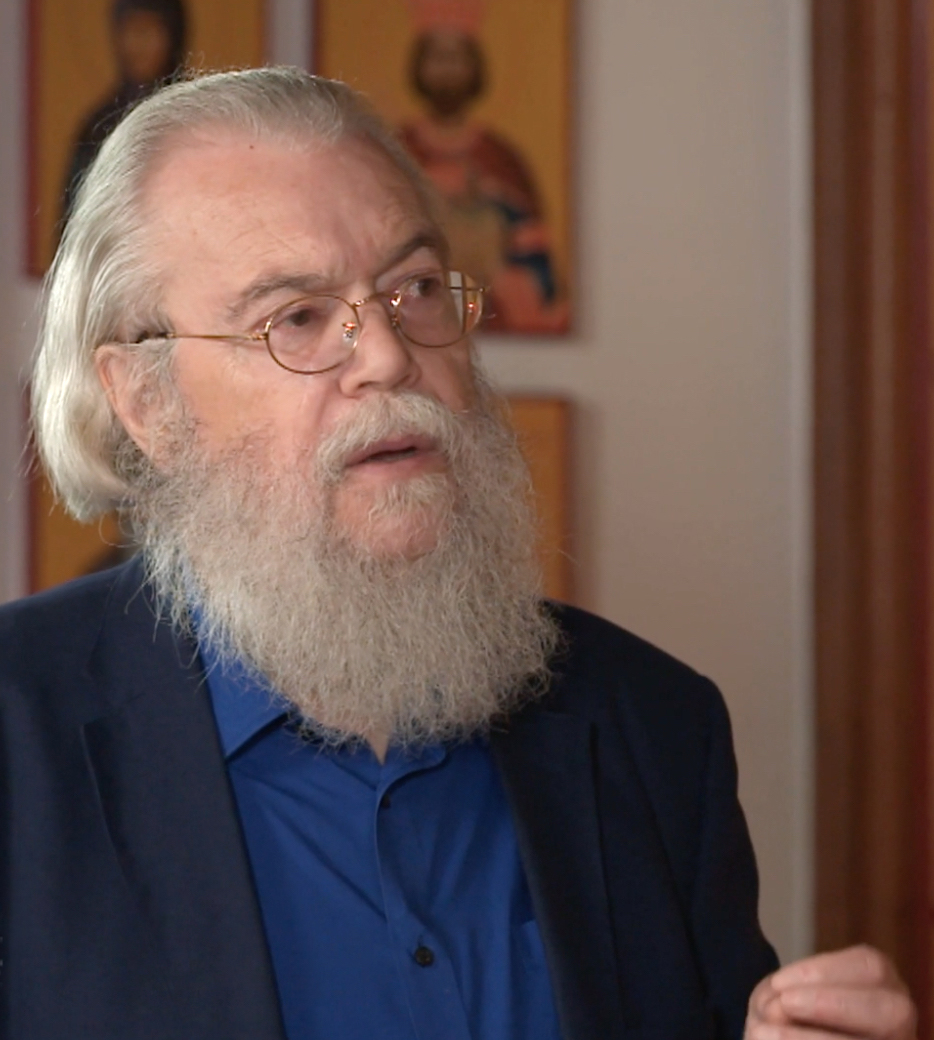
Jean-Claude Larchet is a Doctor of Philosophy and Theology and one of the best experts in the theology of St Maximus the Confessor.
He is known to Romanians as the author of “The Therapy of Spiritual Illnesses”, “The Theology of Illness”, “God Does Not Want Human Suffering”.
He was born into a Roman Catholic family and converted to Orthodoxy by reading the Eastern Fathers and their Orthodox commentators.
He is a Doctor of Philosophy from the University of Nancy (1987), a Doctor of Theology from the University of Strasbourg (1994) and, in 2005, he was awarded the title of University Professor by the French National Council of Universities.
He has taught philosophy for almost thirty-five years, while also working as a researcher and writer in the field of Philosophy, particularly in Theology and Patristics.
See also:
- J.C. Larchet: The value of the Holy Communion does not depend on how it is offered to the faithful
- DMOPC18: Jean-Claude Larchet calls for abstinence from social media during fasting periods
Photo source: Orthodoxie.com
Follow us on Twitter: @BasilicaNews
